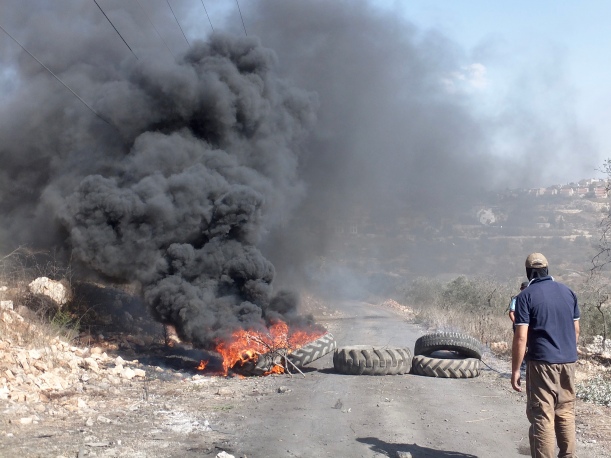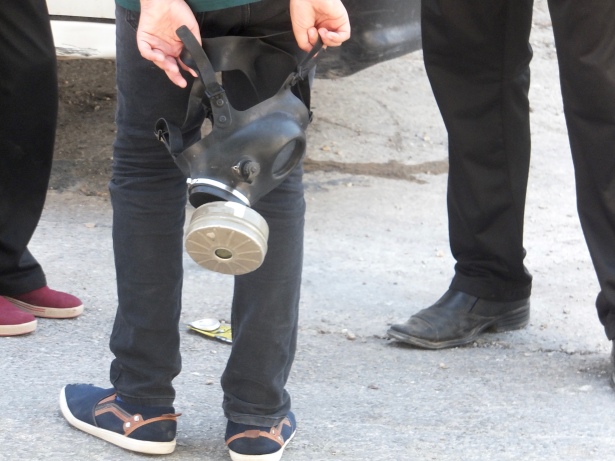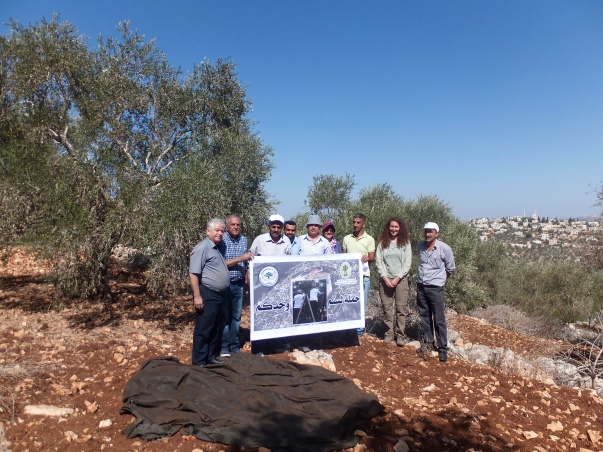It feels like only yesterday I wrote the last blog post but here I am a whole week later. I spent three days this week picking with a lovely family whose land is located close to the illegal settlement Yakir. Our local coordinators contact farmers who have land in compromised areas and we often spend a couple of days with each farmer and their families. We usually start the day quite early to get in a few hours before the midday sun and finish at around 5pm. The families provide lunch for us, which is a nice opportunity to sit around, get to know each other, practise some Arabic, laugh and even sing and dance!


The family this week told us that the Israeli army use their land as a training ground for soldiers. About ten years ago, the army uprooted hundreds of their olive trees and built a huge artificial hill. They are regularly bothered by soldiers and settlers. When we were walking to pick with them one day this week, a settler drove up alongside us and asked where we were going. I didn’t answer him and he drove away – it is best not to engage in conversation with the settlers because they can be quite violent and cause further problems and the Palestinians can lose trust in us if we are seen to be conversing with settlers.

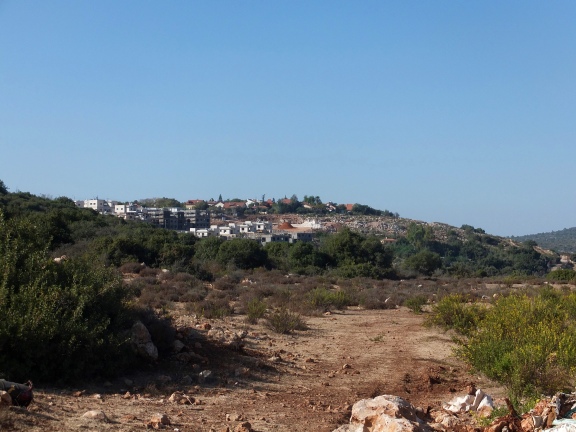
Around 2pm on one of the days we were picking this week, we received a phone call from a coordinator telling us that there had been a problem with settlers and Israeli Occupation Forces near a boys’ secondary school in a town called Urif. Urif is located 2km away from the illegal settlement Yitzhar, which is known for its settlers being prone to violence and having previously attacked children and internationals. By the time we arrived, everyone had left and the school had closed but we were able to speak with an eye witness from the local council who showed us pictures and video clips of the day. An infamous settler known as Jacob, who is a security guard in Yitzhar, had come close to the school with two young settlers carrying an M16. After two hours both they and the army left again.
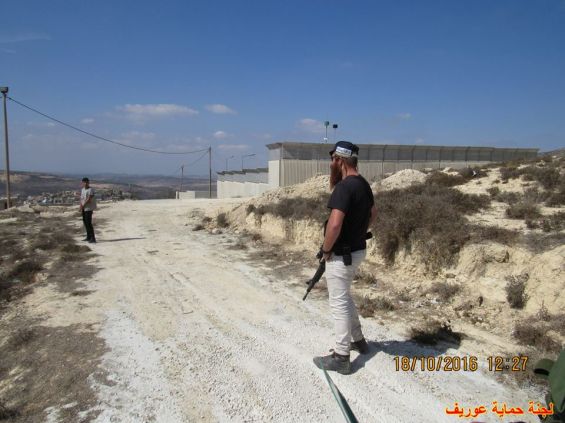

I also recieved a very kind invitation from a fellow volunteer to spend a couple of days and nights with a friend of hers in a village called Sir. The village is very small with about 600 inhabitants and it seems that everyone is related, making for lovely evenings sitting around and talking. When we arrived we spent the afternoon with her children, all under 18, and I was taken aback by the stories that they told us about Israeli Occupation Forces’ violence and oppression. Injustice and murder are facts of their everyday lives. One evening Rosie’s friend took us to her shoe shop with two of her children. On the drive there we passed an open gate that was manned by two Israeli soldiers. This gate is sometimes closed in the evenings without warning, preventing villagers from getting home from work or the olive harvest for hours on end. The young girl in particular became very distressed but we passed through the gate without any problem. Even so, soldier presence, checkpoints, gates, settlements and night raids- these are constant reminders of the occupation, which must be especially overhwelming for children.

Having stupidly slipped down a tree earlier in the week when sawing a branch I’ve incurred a rather colourful and tender injury on my derrière – I’ll spare you the photos. When the house computer started playing up last night it was decided that I would stay at home to rest said contusion and fix the computer. Five of the women went to pick olives in Assawiya but were faced with a stressful morning when a settler and soldiers denied them and the Palestinians access to the land. The reason given was that “if someone is killed today, it is a big problem”, which is very ironic seeing as he was the only one to be carrying a weapon… They then said that internationals would now be banned from cultivating this land – something that sadly happens often and is an attempt to block internationals from recording human rights abuses.
So all seven of us ended up spending the day at home and we had a big spring clean. Today was noticably cooler and the sky was much cloudier but it is still warm enough to eat and sit outside until late evening.
My two roomates are fast asleep and there is a mosquito buzzing around my head as if mocking my slow reaction speeds alerting me to the plans it has for me this evening so I think it’s time to try to sleep. Good night!






